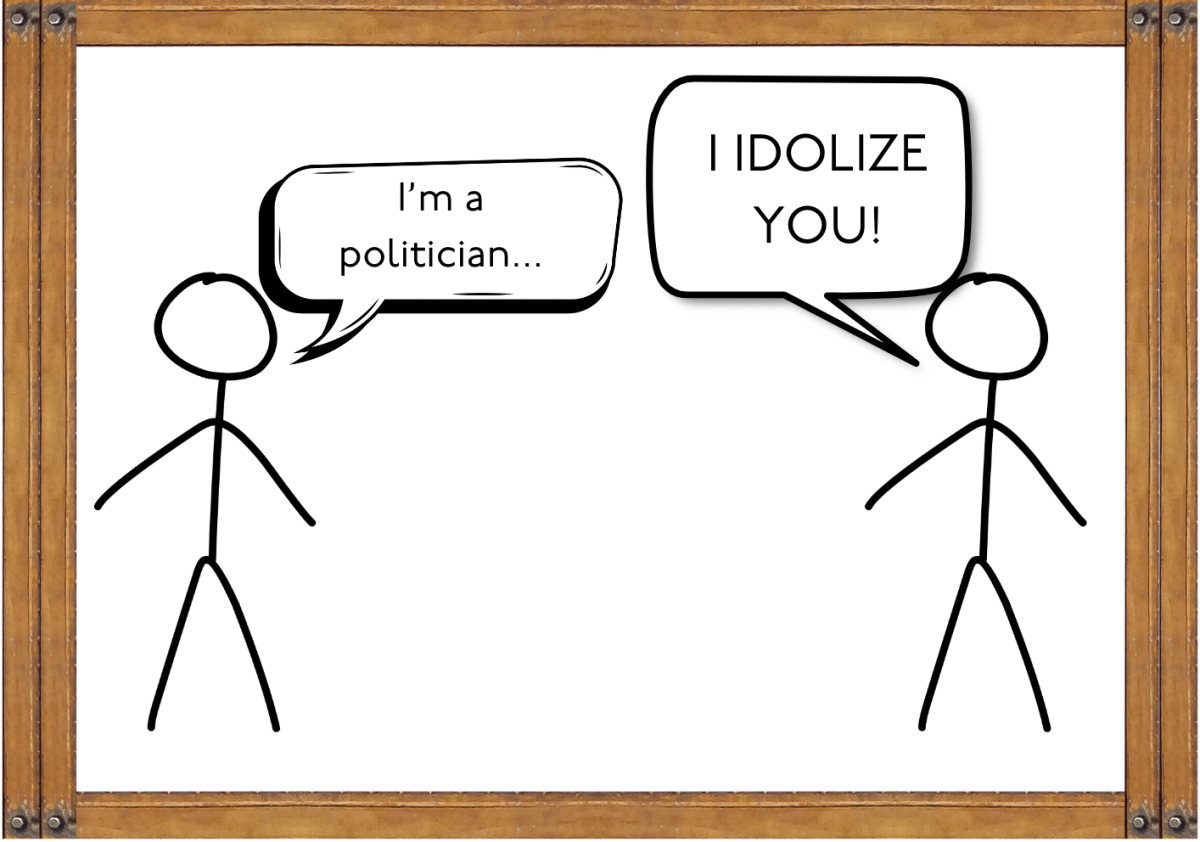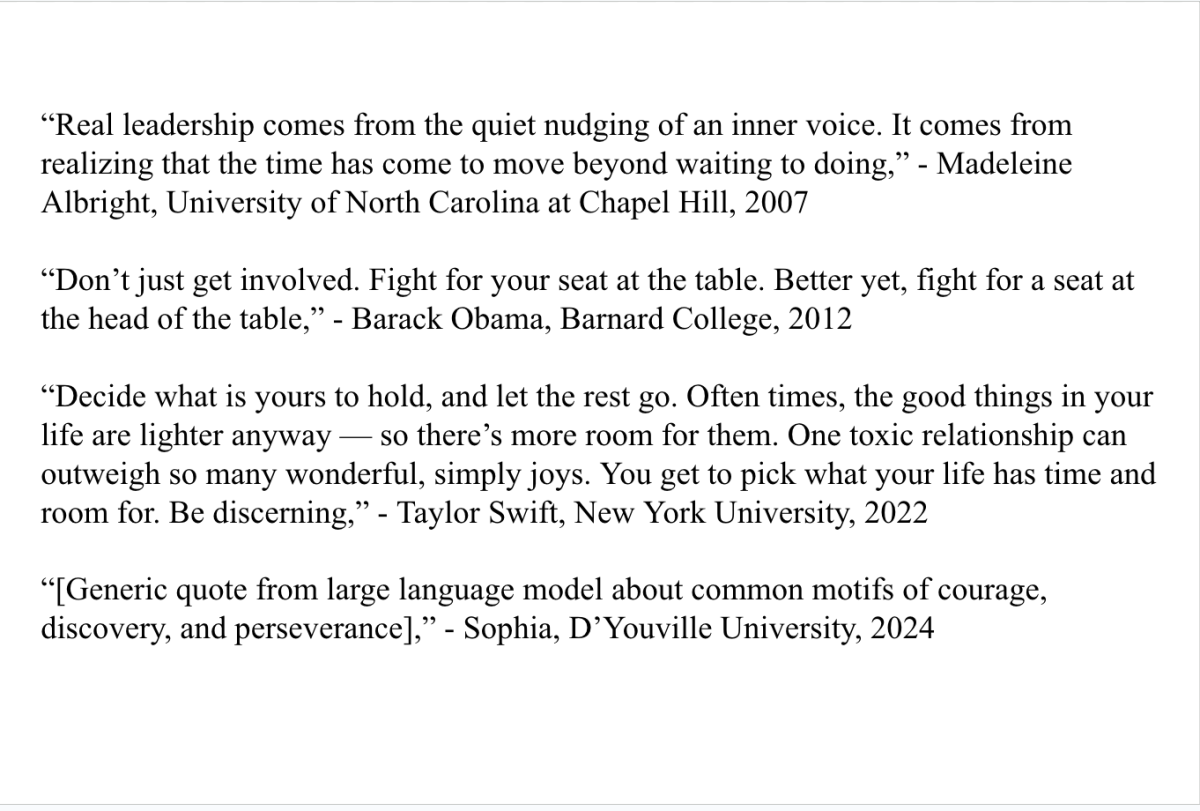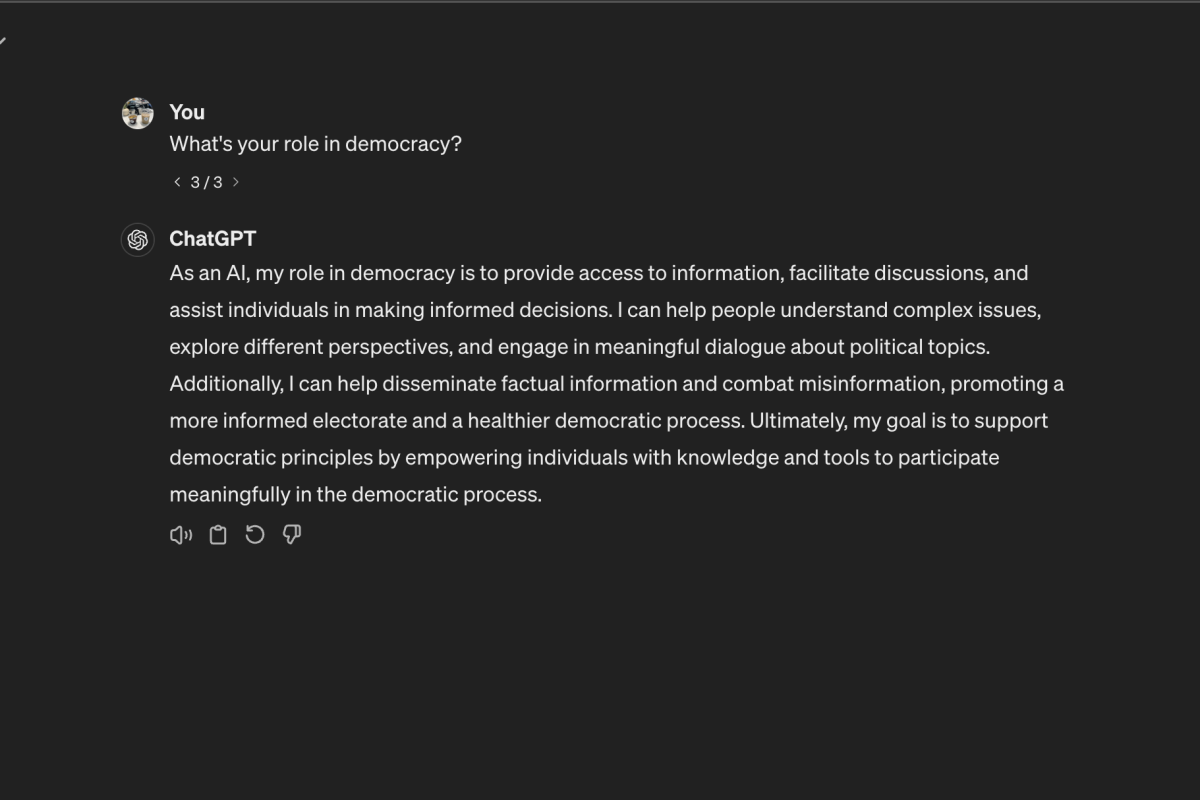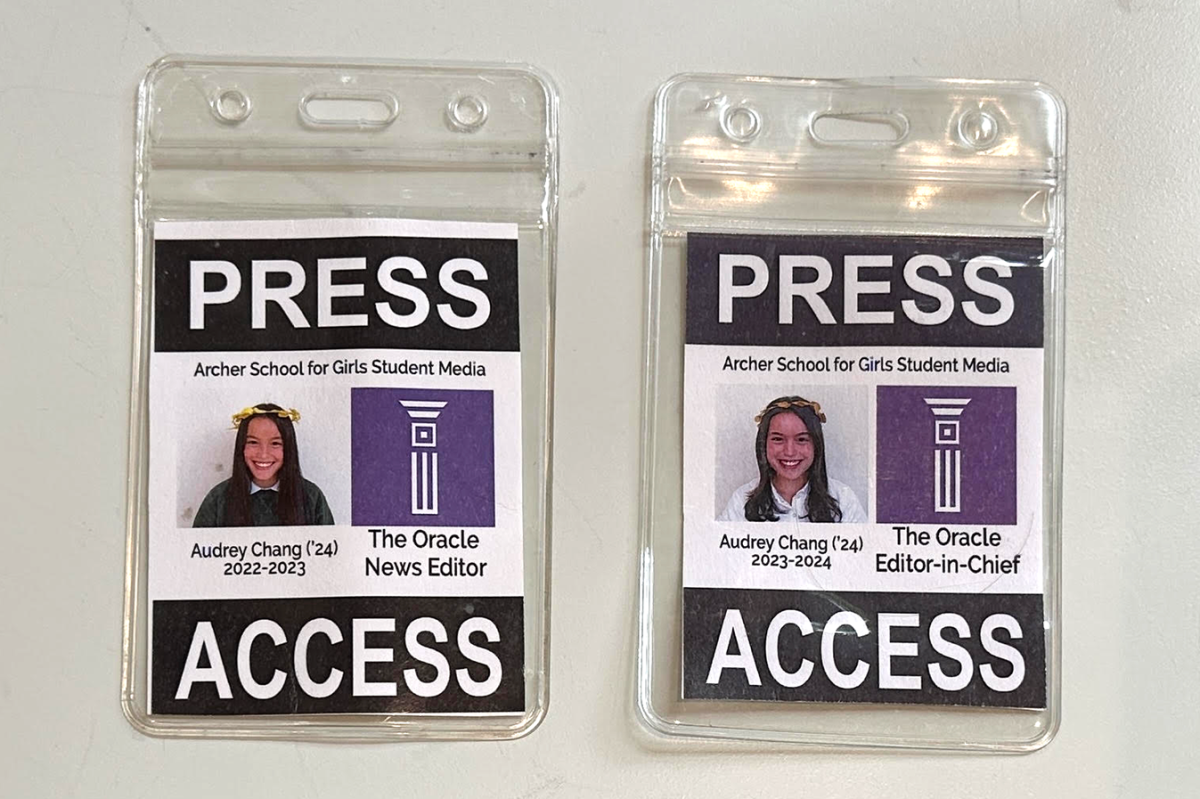
Strong opinions, aggression and reckless support: these are three terms I would use to describe the political engagement that has manifested in the U.S. in recent years. Over time, politics has become increasingly polarized, with Democrats progressively leaning more left and conservatives to the right, according to the Pew Research Center. With this increased partisanship divide comes an increase in public “fan behavior” toward politicians.
You might be wondering if there’s even a difference between idolizing a celebrity versus a politician. Let me tell you: there is a difference, and it’s major. Although idolizing any famous person creates a parasocial relationship with someone you’ve only seen a crafted side of, there is significantly less harm in idolizing a celebrity than in idolizing a politician.
When supporting a celebrity, most of the time, you’re supporting a product of their labor. For example, “Swifties,” appropriately titled fans of Taylor Swift, support her because of the music she puts out. However, if she puts out one “bad” song, these fans will still support her. This same logic just doesn’t carry over into politics. If you support a politician, you can’t blindly support all of their policies, good or bad, given that policies have a larger impact than songs. This delves into the dangerous realm of “stan.”
To clarify the difference between a supporter and a “stan,” a supporter likes some parts of a person, in this case, a politician’s policies and leadership decisions. It’s totally acceptable to support one politician, especially in an election year. A “stan,” however, naively supports all of a politician’s actions, regardless of the context.
Since the 2020 presidential election, fan culture has only further invaded politics. I can log onto TikTok on any given day and come across a velocity edit of Joe Biden or Donald Trump. I often see meme compilations of politicians and audio clips of their voices being used to make Tiktok “thirst traps,” an example of classic fan behavior in pop culture.
Such fanaticism toward one politician leads to complacency in the ways we encounter and think about politics. Most “fans” stop thinking critically about politicians’ decisions, instead blindly supporting all of their acts without the research required to fully take a stance on that action. The truth of the matter is that no politician is perfect, and when we act like they are, we allow them to get away with things they shouldn’t. We become complacent as a society and stop holding our leaders liable, generating a dangerous lack of accountability among politicians. We forget that just because politicians represent us, it doesn’t mean they are us, so their decisions aren’t always going to align with our personal values.
This blind public support is most clearly demonstrated through former president Donald Trump, who served from 2016 to 2020. Despite his current legal troubles, including being indicted in multiple states, he is still the frontrunner for the Republican presidential nominee. Despite literally being the only president ever to be impeached twice, his fans still refuse to recognize his faults as a leader, politician and person.
When Trump says something, his fans blindly agree and follow his lead. For example, Trump claimed that the 2020 election results were fake and that voter fraud lost him the election. To this day, his supporters refuse to recognize that he fairly lost that election, despite many sources, including ex-Attorney General William Barr, denouncing this claim. Such blind faith in Trump led to the Jan. 6 riots, in which his extreme supporters even tried to storm the capital. They tried to overthrow our democracy because of one man. Because they idolized this one man. And that is extremely dangerous.
Since Trump’s supporters refuse to think freely for themselves, they fall susceptible to the misinformation and propaganda he frequently spreads. QAnon is one such group of extreme right-wing Trump supporters who spread far-fetched conspiracies. They fabricated the infamous Pizzagate, in which right-wing extremists stormed a pizza place believing there was an underground human trafficking ring associated with 2016 Democratic presidential nominee Hillary Clinton in the basement. But guess what? The pizza place didn’t even have a basement.
There is also a dangerous level of groupthink present amongst many extremist support groups like QAnon. These groups feed off of each other’s conspiracy theories, hatred and misinformation, which continues in an endless cycle. Due to groups like these, individual, critical thought has only decreased in recent years.
To progress as a logical, individualistic and just society no longer plagued by polarization, we must stop this reckless idolization and remember that all politicians have their faults. I implore all citizens of this country who care about our government to avoid falling into the category of “stan” or joining support groups in which you cannot think critically about the politics of this country.




















